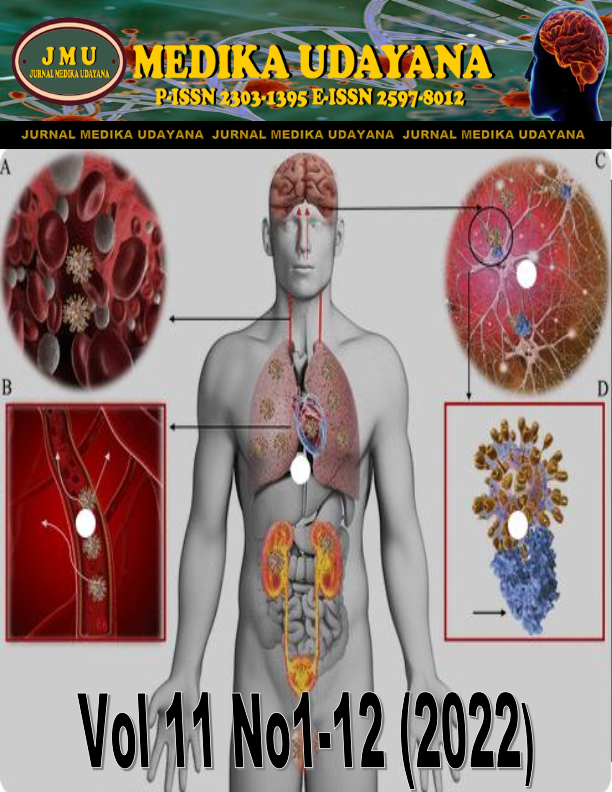The PREVALENCE OF POSITIVE SYPHILIS RESULTS WITH ELISA AND CLIA EXAMINATION METHODS IN INDONESIAN RED CROSS BLOOD DONOR UNITS, DENPASAR CITY, MAY - DECEMBER 2021
Abstract
Introduction. One of the sexually transmitted diseases is syphilis which is caused by the bacterium Treponema pallidum. Patients with syphilis can experience severe systemic symptoms and can cause disability. However, in latent syphilis the initial symptoms are minimal or even asymptomatic, so that undetected syphilis sufferers can still escape and can carry out blood donation activities. To meet the demand and need for blood in Denpasar City, the Indonesian Red Cross Blood Donor Unit Denpasar City conducted blood donation activities. However, due to the ongoing Covid 19 world pandemic, including Indonesia, the activities of mobile blood donor units are limited. Providing safe blood is the duty of the blood donor unit. Screening test is a way to detect the presence of Transmitted Infection Through Blood Transfusion (IMLTD). The techniques used are Enzyme-linked Immunoserbent Assay (ELISA) and Chemiluminescence Immunoassay (CLIA).
Methods. This research is a retrospective descriptive type by taking secondary data from the screening laboratory of the Denpasar City PMI blood donor unit for the period May-December 2021.
Results. There were 21 blood samples with reactive syphilis results from May to August which were performed using the ELISA method with a total of 831 donor bags. A total of 28 blood samples from 1,338 bags that were donated showed reactive results from September to December using the CLIA method.
Keywords: Syphilis, ELISA, CLIA, blood donation, prevalence











